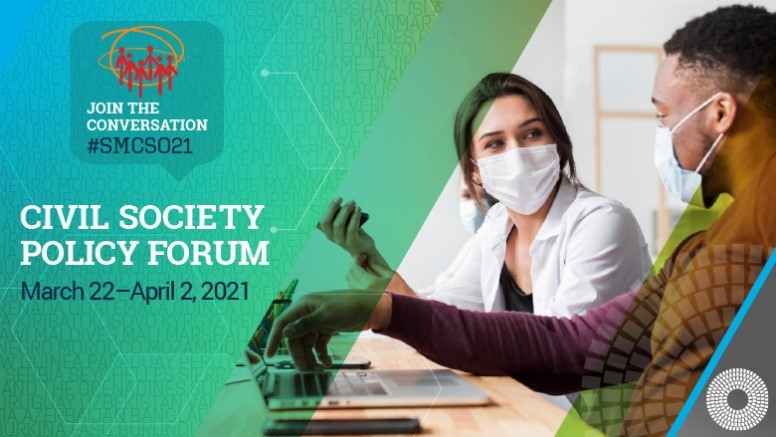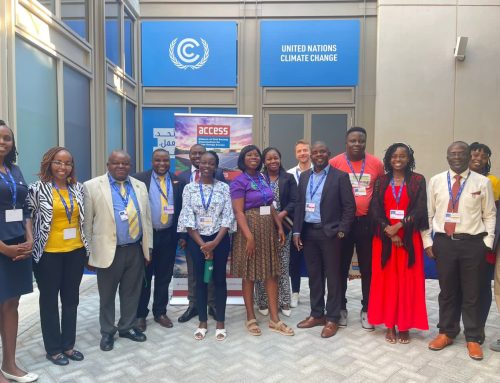ACCESS attended some sessions of the virtual World Bank Spring meetings that were held between Monday, April 5, through Sunday, April 11, 2021. Prior to these meetings was the Civil Society Policy Forum that ran from March 22 to April 2, 2021 where CSOs interacted with IMF and World Bank Group management on issues of importance. The Civil Society Policy Forum culminated in a roundtable with the World Bank Group Executive Directors in a session that covered Covid-19 & climate change, accountability and debt.

The Civil Society Policy Forum
The Civil Society Policy Forum (CSPF) is held annually. The forum provides means for engagement and a platform for a globally and thematically diverse group of civil society to voice their concerns, share ideas and experiences, and dialogue with staff on a wide range of issues and development topics.
The CSPF has a Working Group with representation from CSOs across the globe. The current Working Group members were elected in 2019 for a two-year term beginning January 2020, and their main role is guiding CSPF. They also engage with other CSOs on priority issues related to the objectives of the forum.
CSOs must register to attend the meeting through a link provided on the CSPF website. In order to hold a side event during the meetings, there is a call for proposals that is issued, and once you submit a proposal, it is considered, and a decision offered within stipulated periods. All side events are held during the Civil Society Policy Forum.
Observations and recommendations for CSOs
- More engagement with the Bank on Energy Transition in Sub Saharan Africa: Most of the meetings that were organized by the World Bank Group delved on accountability, Covid-19, debt restructuring, and citizen engagement. Only one event focused on how the World Bank Group can accelerate efforts to be free from fossil fuels, while one other focused on climate change out of 12 sessions whose recordings can be accessed here. To substitute this, there is need for CSOs to hold more side events on the energy transition, particularly for sub-Saharan Africa, as it is a real priority for African governments during this decade of action. Ahead of the next meetings, the Coalition and members will set the stage for participation in the side events.
- Greater engagement with Executive Directors on thematic issues: The meeting with the World Bank Group Executive Directors was an opportunity which ACCESS took to ask about Covid-19 recovery and energy (cold storage of vaccines). One hour, however, was not sufficient for this. In future, the Bank could opt to have separate thematic sessions with the Executive Directors – the energy transition discussion could be picked in a session on its own.
- Local World Bank Group office facilitation for the participation of marginalized and critical groups: Holding virtual meetings was in order due to the current restrictions from Covid-19, and this provides many groups with an avenue to participate. There were two challenges, however. One was the publicization of the meetings, and the other was the participation of the most marginalized in Sub Saharan Africa in the meeting. More should be done in the future to support CSO participation including the involvement of local World Bank offices in facilitating the participation of CSOs and marginalized communities.
- CSO Working Group 2022: There is need for the coalition and its members to consider putting in applications for CSO Working Group position in order to influence the agenda for the Spring meetings to give more focus to a just energy transition and energy access in sub–Saharan Africa during this decade of action.





Leave A Comment